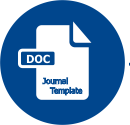Identifikasi Kebutuhan Konsumen Katering Makan Siang Di Lingkup Dosen dan Karyawan Universitas Ahmad Dahlan Yogyakarta
DOI:
https://doi.org/10.12928/jfc.v2i2.1940Keywords:
bisma catering, identifikasi keinginan konsumen, usaha jasa bogaAbstract
Bisma Catering merupakan teaching factory di program studi vokasi D-IV Bisnis Jasa Makanan. Konsumen Bisma Catering adalah dosen dan karyawan Universitas Ahmad Dahlan. Konsumen memiliki kebutuhan dan selera yang berbeda-beda. Permasalahannya adalah Bisma Catering belum memiliki data akan keinginan dan selera konsumen. Tujuan studi ini adalah untuk mengidentifikasi dan mendokumentasikan kebutuhan konsumen katering di Universitas Ahmad Dahlan. Studi ini merupakan studi deskriptif dengan metode survei. Subyek adalah dosen dan karyawan UAD dengan jumlah (n) 100 orang. Instrumen studi berupa google form yang disebar melalui aplikasi whatsapp. Data yang diperoleh selanjutnya dianalisis secara deskriptif. Hasil studi menunjukkan 58,7% responden adalah perempuan. 59,7% berprofesi sebagai dosen dan 40,3% karyawan. 42,9%% responden menginginkan makan siang dengan rentang harga Rp 13.000-15.000. 44,7% menyukai rasa sedikit pedas. 93,5% tidak ada alergi makanan, 93,5% menyukai sayur dan 67,5% menginginkan masakan yang ditumis. 48,1% menginginkan kemasan rantang plastik.
References
Anonim. 2015. Statistik Konsumsi Pangan Tahun 2015. Jakarta.
Arianto, M., & Mahmudah, N. 2014. Analisis Kepuasan Konsumen Consumer Satisfaction Analysis Abstrak, dalam Jurnal Bisnis, Manajemen & Perbankan. Vol. 1, No. 2: 102120.
Fadiati, A. 2013. Mengelola Usaha Jasa Boga Yang Sukses (2nd ed.). Bandung: Remaja Rosdakarya.
Gardjito, M., Hendrasty, H. K., & Dewi, A. 2016. Industri Jasa Boga. Yogyakarta: Gadjah Mada University Press.
KBBI. (n.d.). Retrieved from https://kbbi.web.id/konsumen
Kotler, P., & Keller, K. L. 2016. Marketing Management (15th ed.). London: Pearson Education, Inc.
Notoatmodjo, S. 2012. Metode Studi Kesehatan. Jakarta: Rineka Cipta.
Prabowo, P. A. 2013. Analisis Perilaku Konsumen Jasa Katering Untuk Keperluan Pesta di Surabaya, dalam Calyptra: Jurnal Ilmiah Mahasiswa Universitas Surabaya. Vol. 2, No. 1: 19.
Saryono. 2011. Metodologi Studi Keperawatan. Purwokerto: UPT. Percetakan dan Penerbitan UNSOED.
Downloads
Published
Issue
Section
License
Copyright (c) 2020 Palupi Melati Pangastuti, Rai Rake Setyawan

This work is licensed under a Creative Commons Attribution-ShareAlike 4.0 International License.
Authors who publish with JOURNAL OF FOOD AND CULINARY agree to the following terms:
- All articles published are Open Access that means they will be immediately and permanently free for everyone to read and download. We use the CC-BY-SA license options under Creative Commons Attribution License (CC BY-SA 4.0). Creative Commons Attribution License (CC BY-SA 4.0). CC-BY-SA assures that all works will be available under CC-BY-SA always and no risk of commercial actions against the will of the copyright holder.
- Anyone can use, copy and disseminate the material in any medium or format; as well as re-use, re-mix, transform, and build upon the material for any purpose, even commercially. However, they must acknowledge the authors by giving appropriate credits (cite to the article or content), provide a link to the license, and indicate if changes were made and use under the same license as the original.
- Authors retain copyright and grant license exclusive rights in their article to Universitas Ahmad Dahlan as publisher of the JOURNAL OF FOOD AND CULINARY.
- Authors have the right to retain patent, trademark and other intellectual property rights (including research data).
- Authors have the right to proper attribution and credit for the published work.
Copyright Transfer Agreement
- The Authors submitting the manuscripts do so on the understanding that if they are accepted for publications, copyright of the articles shall be assigned to Universitas Ahmad Dahlan as publisher of the JOURNAL OF FOOD AND CULINARY.
- Universitas Ahmad Dahlan as publisher of The JOURNAL OF FOOD AND CULINARY, the Editors, and the Editorial Board Members of the JOURNAL OF FOOD AND CULINARY make every efforts to ensure that no wrong or misleading data, opinions or statements are published in the journal. In any way, the contents of the articles and circulars published in the JOURNAL OF FOOD AND CULINARY are the sole and exclusive responsibility of their respective authors and advertisers.
- The publisher may revoke the publication for violating the ethical code of conduct.





